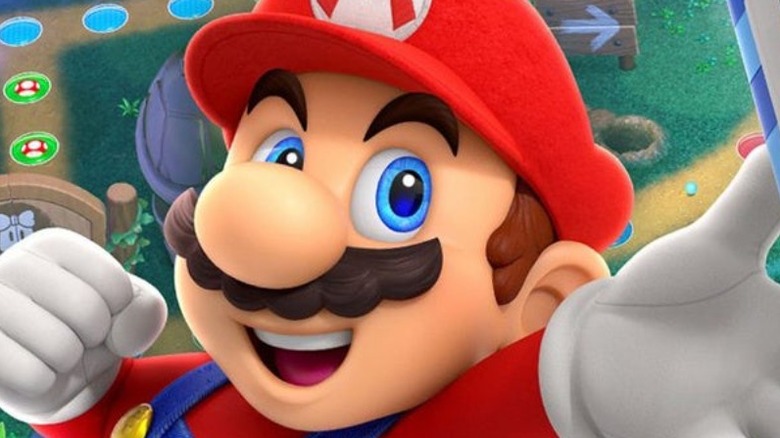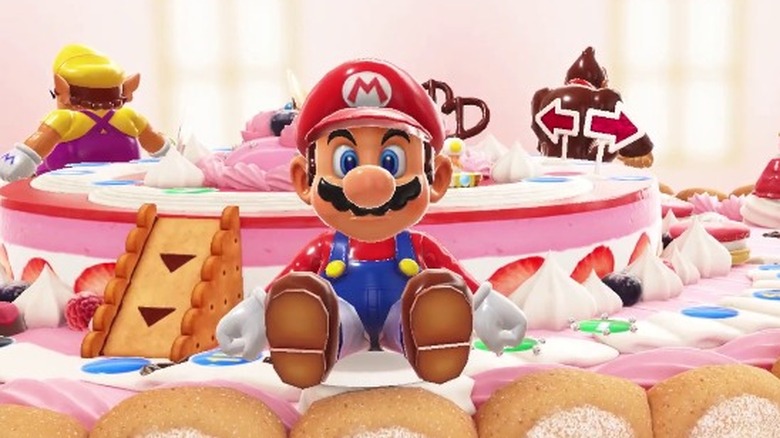What The Critics Are Saying About Mario Party Superstars
"Mario Party Superstars," a return to form for the long-running series, was one of GameStop's most anticipated titles from E3. Now, it has finally arrived on the Nintendo Switch, and critics have voiced what makes the title a worthy — or lacking, in some cases — entry into the "Mario Party" family.
Players' enjoyment of "Mario Party Superstars" might vary depending on their experience with earlier entries in the series. Several critics praised the game's dedication to carefully remastering original elements, like classic boards. Mitchell Saltzman at IGN called the redesigned boards "immaculately detailed," with beautiful new arrangements for the games' original music. Polygon's Ryan Gilliam expanded on the historical nature of "Superstars" in his review, noting that the game serves as an interesting look back at the history of video games for younger players that might be unfamiliar with the origins of "Mario Party." Gilliam said that he got to share some video game lore with younger family members, "like when your parents drive you by the apartments they lived in before you were born, except less boring." In some ways, "Mario Party Superstars" works as a time capsule for the series, showing what the games were like before players could earn buddies, get additional dice, or buy a star for a measly 10 coins. While several critics found the game's nostalgia factor enticing, others had a different take entirely.
Everything wasn't super
Critics like Randolph Ramsay at GameSpot argued that "Mario Party Supserstars" feels dated because it lacks features that spiced up the series after years of stagnation. While many critics praised the game's back-to-basics approach and exclusion of motion controls, Ramsay claimed that "Superstars" might alienate younger players who don't know about the "Mario Party" series outside of its motion-controlled era. That being said, the lack of motion controls in "Superstars" makes it playable on the Switch Lite, opening up the potential for more "Mario Party" on the go and allowing players previously left out of the party to join in on the fun.
In the anti-motion controls camp, Gilliam argued that the lack of motion controls in "Superstars" actually makes it more accessible to non-gamers who find them intimidating. Most minigames have limited button configurations and are easy to pick up after just a round or two. Also inviting is the lack of extended turn animations in "Superstars," which made "Super Mario Party" tedious for some players. Jhaan Elker at Washington Post praised the speedy turns in "Superstars," even though he mourned the fact that developers decided to include the series' most dangerous game in the roster.
Overall, critics seemed to agree that if players already enjoyed older entries in the "Mario Party" series, or if they wanted a simpler "Mario Party" experience, "Superstars" might be worth picking up. Even though it doesn't reinvent the genre, it still offers a chance for friends and family to join together in the age-old tradition of competitively yelling around a TV.


